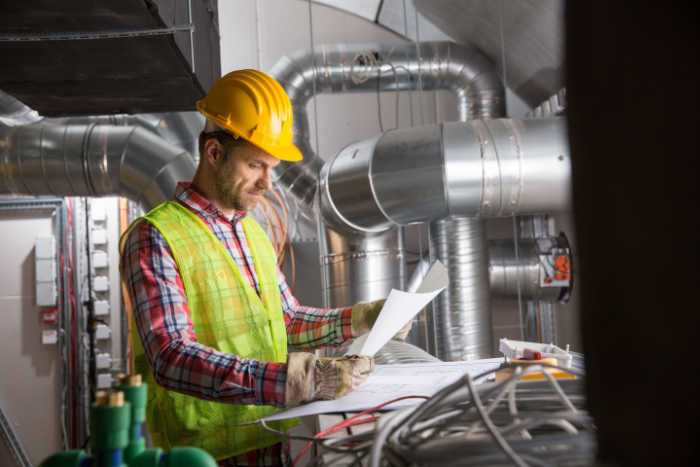Heating, ventilation and air conditioning systems (HVAC) are responsible for maintaining air quality and regulating temperature in commercial buildings. To do this effectively, they must be designed and installed to an exacting standard. They must also be thoroughly checked and tested post installation through a process known as HVAC commissioning.
This process involves a complex set of activities that must be carried out by qualified professionals.
The purpose of HVAC commissioning is to ensure the system in question functions as its operator intended, and that all components are installed according to both system design and manufacturer instructions. It’s also an obligation for all works approved under UK Building Regulations Part L: Conservation of Fuel and Power.
Generally speaking, commercial HVAC commissioning takes one of three forms:
Initial Commissioning: this involves the testing of a brand new HVAC system installation. Testing is carried out to ensure the new system meets client requirements and design intent.
Retro-Commissioning: this is what we call the commissioning of an HVAC system installed more than 12 months prior but yet to undergo initial commissioning.
Re-Commissioning: this is the process of testing a previously commissioned HVAC system to check it’s still compliant and still meets owner and design specifications. Depending on the circumstances, repairs or upgrades may be required to bring the system in line with these criteria.
There’s also the process of HVAC decommissioning, which refers to the safe shut down and removal of an existing HVAC system, either to retire or relocate it.

There are several stages to the HVAC commissioning process.
The first step involves a thorough inspection of the HVAC system following its installation. The commissioning engineer will verify that the right equipment has been installed and that it’s situated in the right location. They’ll also work with a design specific checklist to ensure every part of the installation satisfies the requirements of the equipment manufacturer.
The next step is to witness the system in action, commonly known as ‘setting to work’. Here the commissioning engineer will oversee the start-up, operational phases and shut down of the system, double checking and documenting these key functions. Any issues here must be reported to the HVAC contractor immediately.
Next comes testing, adjusting and balancing. This may include:
These activities ensure the system operates to maximum efficiency levels in the given environment, optimising indoor air quality and improving system longevity. After commissioning and balancing have been completed, a full detailed report will be given to the designated operator of the HVAC system.
Commissioning is a critical part of running a compliant and effective HVAC system. Without it, equipment may not work correctly, and its installation may be rendered pointless.
By ensuring the correct procedures are carried out, building owners and facilities managers will have assurance that their system is performing safely and as intended, and will have proper documentation on its operation.
At Loughborough Air Conditioning we cover all aspects of commercial HVAC, from initial design and application through to commissioning and decommissioning of existing systems. We’re also members of REFCOM Elite, a voluntary scheme promoting best practice in refrigeration management. That means you can rest assured all works are fully compliant under F-Gas Regulations and completed to industry leading standards.
